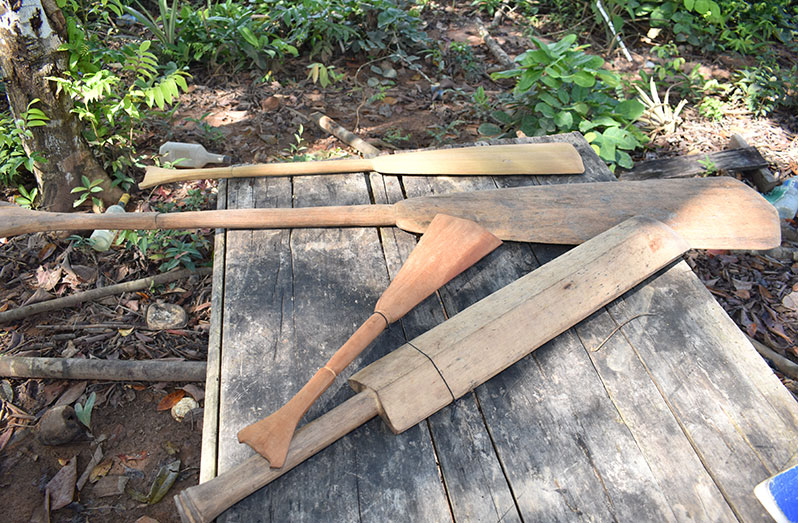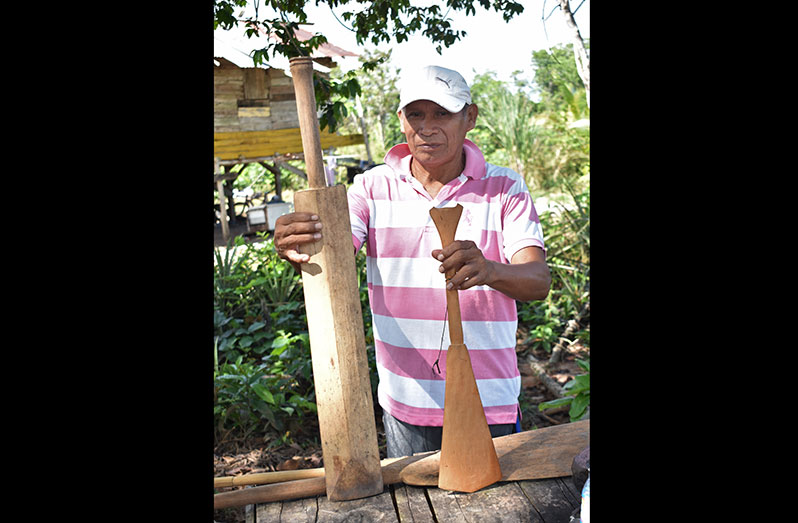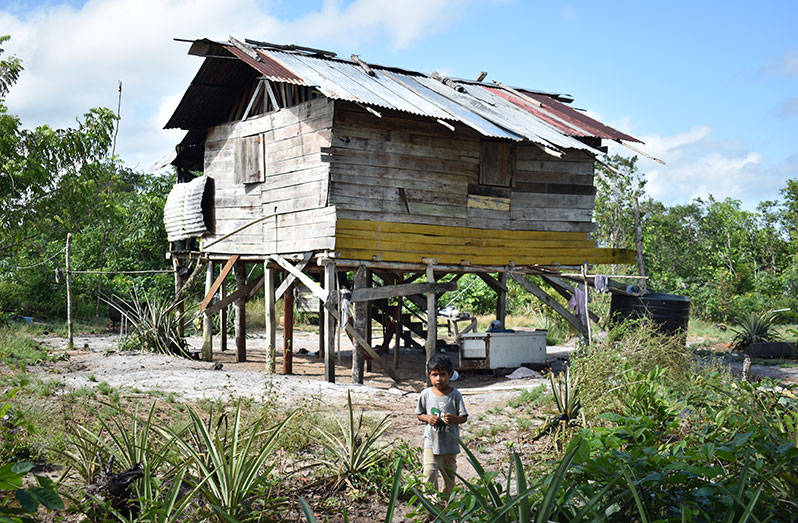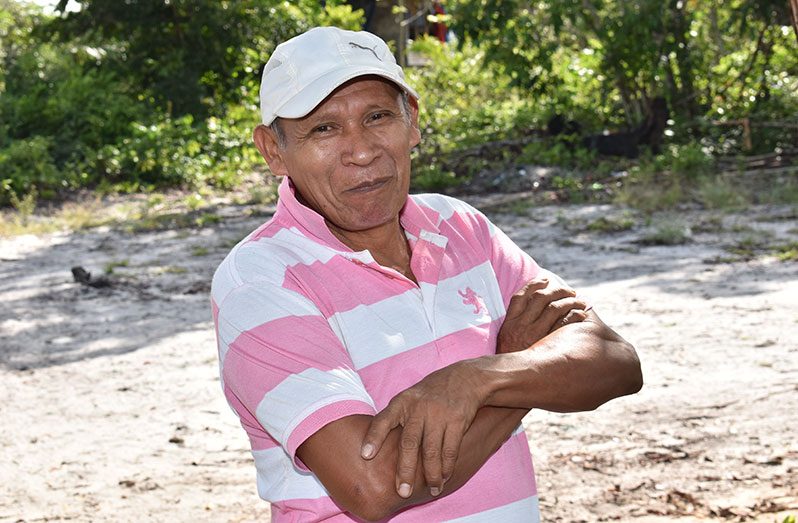VIBERT Williams is a resident of Loo Creek, Soesdyke/Linden Highway and is one of the early settlers in the village, who left his hometown of Port Kaituma, North West District, Region One (Barima-Waini) in search of work at age 12 years old.
The 67-year-old is contented with life, since most of his children reside in the same village.
Williams stated that he left home because he wanted to work and earn and opportunities were not plentiful, so he went to work in Berbice River at a logging concession.

There, he grew into the job as a young man and he met a lovely young woman; they dated until they got married and had 10 children.
She is from the Canje Creek, Berbice River and they started life from scratch.
Williams added that he went back to Port Kaituma in 1984 but by then most of his relatives had passed away.
His parents were alive, but they died a few years ago.

The resident stated that when he came to Loo Creek it was dense jungle and he cleared a part of the land which took some time and the year was 1981.
He managed to build a small house and settled there with his wife and children, some of whom were born there.
“I tried to plant close to my house, but the acushi ants have destroyed all my crops; so I had to go further[sic] in the village to plant ground provisions, but the wild hogs would destroy my crops at times,” he said.
By foot, the farm is miles away and by bicycle it is easier and it is over by the creek, way down to the end of the village.
Williams reported that he has 30 acres of land and it is leased by the Seventh Day Adventist Church.
He would sell his crops in the city or to whoever wants to buy them.
In his free time, Williams would cut t-shores, matuk handles, make shovel handles, paddles and other woodwork to sell.

He would also burn wood to make charcoal to sell and make furniture too.
“I don’t want to work with people because they take advantage of you and underpay you, so I use my skills to provide for my family,” he said.
Williams disclosed that he used to burn wood to make charcoal on a large scale of 250 bags per day, but when that small business got slow, he had to do other jobs to bring in an income to the home.
“I started to farm, but it is four miles away by the creek and it is a long walk and when the crops are near harvest, the wild hogs would eat it all up and I am left with nothing,” he said.
He reported that he had some chickens and ducks rearing, but the tiger cats would come out at nights and kill the poultry in their pens.
Williams said from 15 ducks, he has none left and only three fowl cocks, the ones that fly, so when they see the wild cats they will fly off and return when it is safe.
He explained that at nights the wild animals are on the prowl and they would eat whatever they find, even the dogs are not spared.
An old freezer is used for storing meats, and he would buy three buckets of ice for it and they would use lamps and other things in the night as their light source.
The village elder stated that he would also make handles for shovels, rakes, matuk and paddles and he has a buyer in the city, a store would take the lot.
Williams stated that he would make it in 200 and 300 pieces and make one trip to the city to sell whenever he has an order, because making these things takes time and a lot of effort, especially sourcing the wood form trees in the forest.
“Life here is fair, but you have to be independent and know to do more than one jobs, because there isn’t a lot of jobs around here and you have to find work to put food on the table,” he said.



.jpg)











